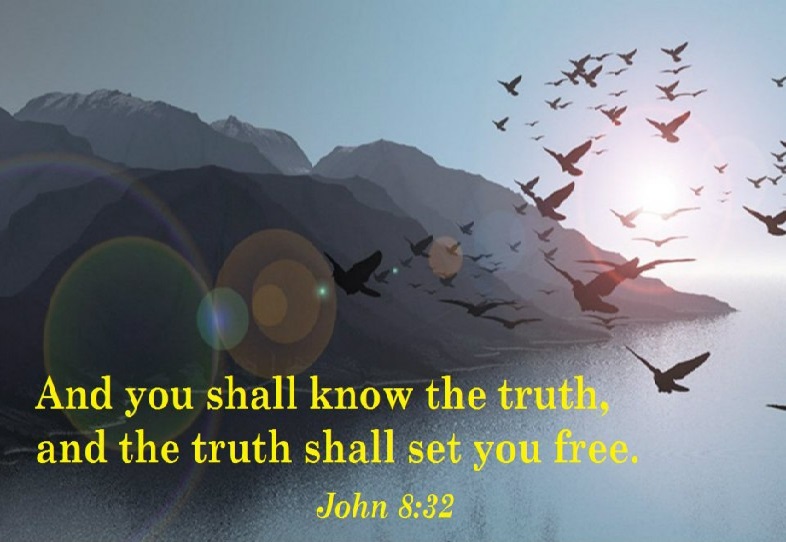Each week we let Saint Pope John Paul II share meaningful signposts to spark socio-economic resolves through justice and righteousness combined with mercy and compassion; in short, love.
32 and you will know the truth, and the truth will set you free.”
__ John 8: 32 (English Standard Version)
Krakow, Poland, 8 June 1997 | Humankind knows the truth is above and beyond him. Man does not create truth. Truth discloses itself to man when he perseveringly seeks it. The knowledge of truth begets spiritual joy (Gaudium veritatis).
In this experience of joy at having known the truth, we can also see a confirmation of man’s transcendent vocation and his openness to the infinite.
The men and women of our time need you.
They need your scientific curiosity, perceptiveness in asking questions, and honesty in answering them.
They also need that specific transcendence that is proper to Universities.
The search for truth, even concerning a finite reality of the world or man, is never-ending; it always points beyond something higher than the immediate object of study to the questions which give access to Mystery.
How important it is that human thought should not be closed to the reality of Mystery, that man should not become insensitive to Mystery, and that he should not lack the courage to plunge into the depths!
Few things are as important in human life and society as the service of thought.
The “service of thought” to which I am alluding is essentially nothing other than the service of truth in its social aspect. Every intellectual, independently of his convictions, is called to let himself be guided by this sublime and challenging ideal and to function as a critical conscience regarding all that endangers humanity or diminishes it.
Being a scholar entails obligations!
It entails the obligation of a particular concern for developing one’s humanity.
Here I wish to recall a man known personally by many of those present and myself. Linked to the scientific circles of Krakow, he was a professor at the Polytechnical Institute of Krakow.
To our generation, he became a particular witness of hope. I am thinking of the Servant of God, Jerzy Ciesielski. His passion for science was inseparably linked to an awareness of the transcendent dimension of truth.
He united the meticulousness of a scientist and the humility of a disciple striving to hear what the beauty of the created world tells us of the Mystery of God and man.
He turned his ” service of thought ” as a man of science, his “service of thought,” into a path to holiness. When we speak of the scholar’s vocation, we cannot ignore this perspective.
In the daily work of a scholar, a particular ethical sensitivity is also needed.
For it is not enough to be concerned about the logical, formal correctness of one’s thinking.
The spiritual climate of indispensable moral virtues like sincerity, courage, humility, honesty, and an authentic concern for man must nourish the workings of the mind.
Moral sensitivity makes preserving a connection between truth and goodness possible, which is essential for science.
These two problems cannot be separated! The principle of freedom of scientific research cannot be separated from the ethical responsibility of every scholar. In the case of men and women of science, this moral responsibility is fundamental. Ethical relativism and purely utilitarian attitudes represent a danger not only for science but directly for individuals and society.
Excerpted from:


Recent Comments